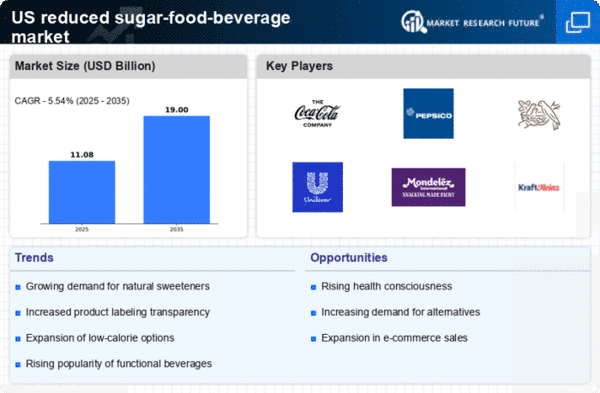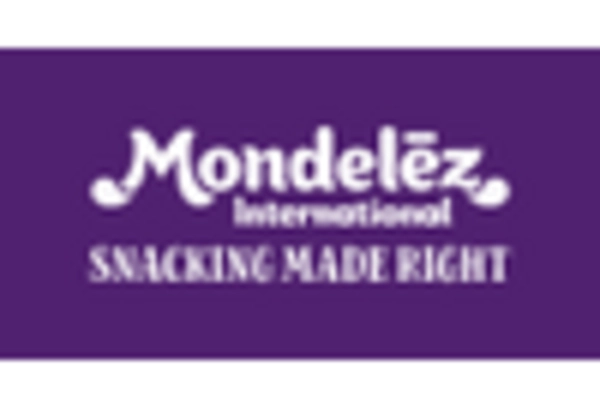Rising Health Awareness
The increasing awareness of health issues related to high sugar consumption is a primary driver for the reduced sugar-food-beverage market. Consumers are becoming more informed about the negative impacts of excessive sugar intake, such as obesity and diabetes. This shift in consumer behavior is reflected in market data, indicating that approximately 60% of consumers actively seek out reduced sugar options. As a result, manufacturers are responding by reformulating existing products and introducing new offerings that cater to this demand. The reduced sugar-food-beverage market is thus witnessing a significant transformation, with brands prioritizing health-oriented messaging and product transparency to attract health-conscious consumers.
Evolving Consumer Preferences
Consumer preferences are rapidly evolving, with a marked shift towards healthier food and beverage options. This trend is particularly evident in the reduced sugar-food-beverage market, where consumers are increasingly opting for products that align with their health goals. Recent surveys indicate that nearly 70% of consumers express a desire for lower sugar alternatives, prompting brands to innovate and diversify their product lines. The reduced sugar-food-beverage market is adapting by incorporating natural sweeteners and enhancing flavor profiles without compromising on taste. This evolution in consumer preferences is likely to continue shaping the market landscape, as brands strive to meet the growing demand for healthier choices.
Regulatory Support for Healthier Options
Regulatory support for healthier food and beverage options is emerging as a crucial driver for the reduced sugar-food-beverage market. Government initiatives aimed at reducing sugar consumption, such as labeling requirements and public health campaigns, are encouraging consumers to make informed choices. These regulations are prompting manufacturers to reformulate products to comply with new standards, thereby expanding the availability of reduced sugar options. The reduced sugar-food-beverage market is likely to see increased growth as these regulatory measures gain traction, fostering a more health-conscious environment. This alignment between regulatory frameworks and consumer demand may further accelerate the shift towards healthier food and beverage choices.
Increased Focus on Wellness and Lifestyle
An increased focus on wellness and lifestyle choices is driving the growth of the reduced sugar-food-beverage market. As consumers prioritize their overall well-being, there is a growing demand for products that support healthier lifestyles. This trend is reflected in market data, which shows that wellness-oriented products are gaining traction, with a notable rise in sales of reduced sugar items. The reduced sugar-food-beverage market is responding by launching products that not only reduce sugar but also incorporate functional ingredients, such as vitamins and minerals. This holistic approach to health and wellness is likely to resonate with consumers, further propelling the market forward.
Technological Advancements in Food Production
Technological advancements in food production are significantly influencing the reduced sugar-food-beverage market. Innovations in food processing and formulation techniques enable manufacturers to create products with lower sugar content while maintaining desirable taste and texture. For instance, the use of advanced sweetening agents and flavor enhancers has become more prevalent, allowing for the development of appealing reduced sugar options. The reduced sugar-food-beverage market is benefiting from these technological improvements, as they facilitate the creation of a wider range of products that cater to diverse consumer tastes. This trend suggests a promising future for the industry, as ongoing research and development continue to drive product innovation.
















